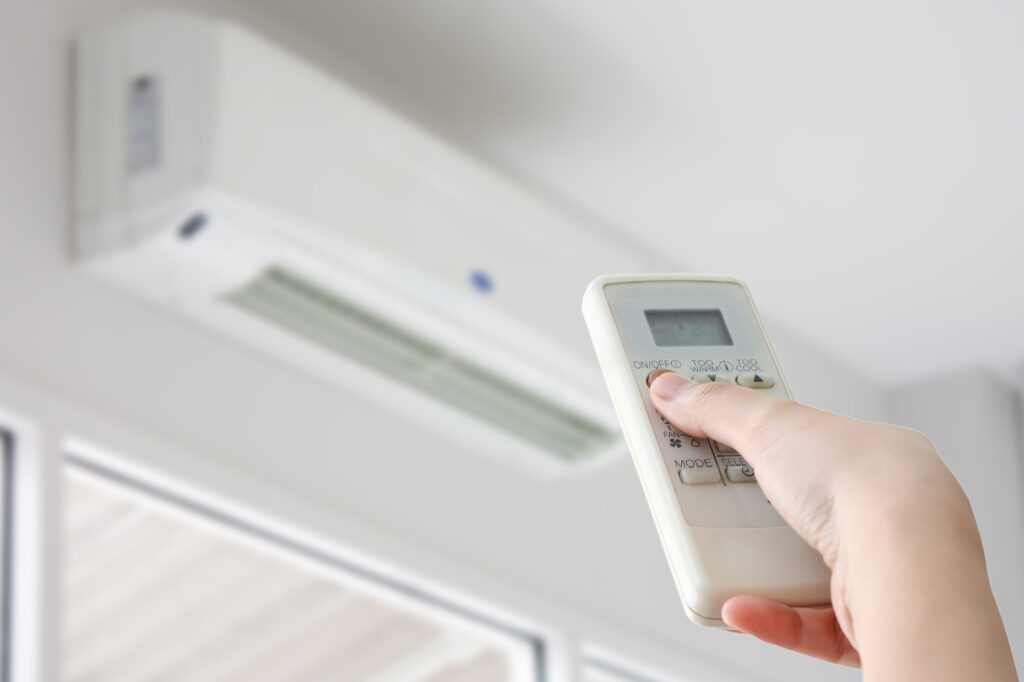Are You Allergic to Air Conditioning? How Your AC Causes Allergies

Can a person be allergic to air conditioning? The short answer is no and sometimes yes.
No, it’s not the AC unit itself that causes you to sneeze, cough, or have a stuffy nose. However, you may be allergic to contaminants in the air that your AC circulates. Also sometimes, the AC houses the source of allergens so, in a way, your AC is the one accountable for making you sick.
Let’s take a look at how your air conditioning is complicit in making your allergies flare up.
Can You Be Allergic to Air Conditioning?
In the simplest terms, allergies occur when the immune system reacts to a foreign substance, the allergen. For most people, there’s no reaction. But for the 10 to 30 percent of the population with allergic rhinitis, their immune system goes haywire from the slightest exposure.
That’s when you experience symptoms such as sneezing, coughing, and difficulty breathing. You may also wake up in the morning with a clogged nose and a dried-out throat.
The keyword here is exposure. If you can avoid the allergen, there will be no reaction and therefore, no allergic symptoms.
To be clear, there are no components in your air conditioning unit that are innately allergenic. As a matter of fact, your AC may even help with your allergies. The air filter can trap potential allergens and the AC can control the humidity to limit the growth of molds that are known to cause allergies.
So What Causes Allergies When You Turn on the AC?
If your AC doesn’t directly cause allergies, why do you feel unwell every time you turn on the AC?
Again, the crucial element here is exposure. Somehow, you’re getting exposed to allergens as the AC begins to circulate the air.
There are two major reasons why this is happening.
1. Air Filter Failure
When was the last time you cleaned or replaced your air filter?
While the main job of the AC filter is to screen out contaminants, it can get overwhelmed after a long period. When it’s crammed up with dirt, it can no longer do its job and may start having a negative effect on your indoor air quality.
Also, debris in your filter can obstruct the airflow, making your AC work harder than it should. To keep your AC at peak performance, you should replace your air filter every three months at the minimum.
Sometimes, you may be hypersensitive to particles that are too small to be filtered out by a regular air filter. Consider an air purifier or a HEPA filter that can trap over 99 percent of all allergens.
2. Humidity
Molds and fungi release spores that are notorious allergens. These organisms, as well as bacteria, thrive on humid conditions.
Your air conditioning might have something to do with their growth.
When your AC unit is running well, it does a good job of controlling the humidity levels. However, leaks and problems within the AC system may cause spot humidity issues. Growth of these biological entities may occur in nooks and crannies, and even within the AC unit itself!
What You Can Do About It
While you may not be allergic to air conditioning per se, issues with your AC may be contributing to your allergies. To remedy this problem, it’s important to keep your AC system in tiptop shape.
That’s when you need the services of a professional. Contact us today for air ventilation and purification, air duct cleaning, and mold remediation.
